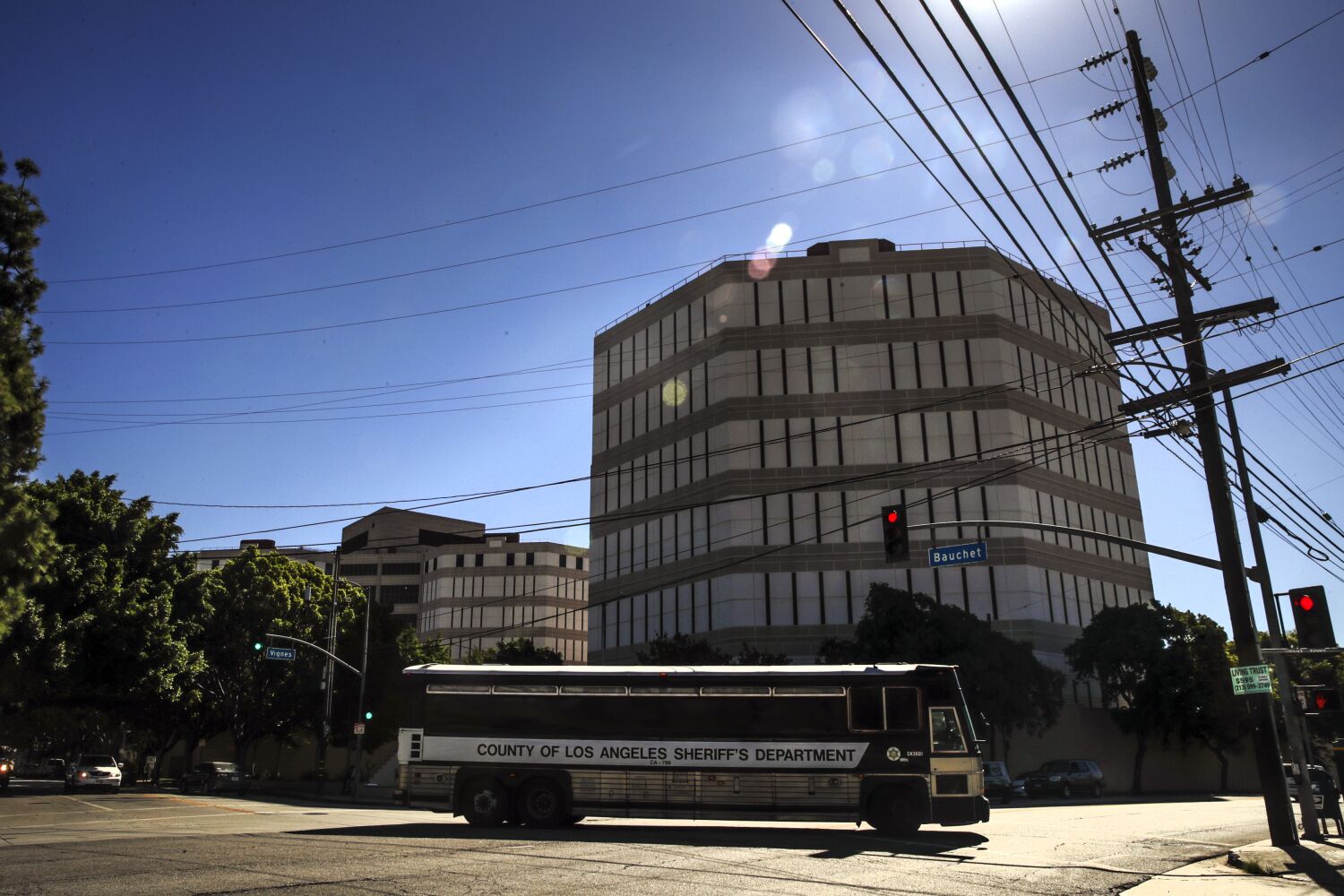An inmate worker at Men’s Central Jail has tested positive for hepatitis A, prompting Los Angeles County health officials to warn those who were inside the facility last month that they may have been exposed to the highly contagious virus.
Although jail officials said Friday that there are no other suspected cases, it’s not clear how many people might have been exposed during the viral incubation period from May 13 to Sunday.
While that time frame coincides with a large group tour that included a federal judge, U.S. Department of Justice officials and attorneys with the American Civil Liberties Union, leaders in the Sheriff’s Department said they did not believe the visitors had been exposed.
“They did not visit the housing area involved, nor did they eat any food,” said Assistant Sheriff Sergio Aloma.
The housing area involved, Aloma said, was a dorm in Module 3600 that houses 16 to 20 inmate workers known as trusties. Trusties typically have more freedom of movement than other incarcerated people and visit many locations through facilities in the course of their jobs.
Sometimes they are involved in preparing and distributing meals to the jail population. Officials are still working to figure out whether the inmate worker handled food during that time, and what parts of the jail he worked in or visited.
“We are also investigating any other housing areas he may have been housed in during his stay,” Aloma added.
In the meantime, the county is offering hepatitis A vaccines to everyone in Men’s Central Jail who might have been exposed, as well as anyone who was incarcerated there during the two-week incubation window. That time frame, officials said, was based on when the man reported his symptoms on Sunday.
Afterward, Aloma said, he was transferred to Los Angeles General Medical Center “and subsequently found to have hepatitis A.”
As of Friday evening, the man was still hospitalized. It’s not clear whether he was infected before being booked into jail or if he contracted the virus behind bars.
The confirmed hepatitis A case came as no surprise to Melissa Camacho, a senior staff attorney with the ACLU of Southern California who went along on last month’s tour.
“It’s overcrowded and people are in close quarters,” she said.
Those concerns — along with issues of poor mental health care, abuse of detainees and abysmal living conditions — have played into a trio of longstanding lawsuits against the county alleging that inmates are treated so badly it violates the Constitution.
Among the group that toured the jails in May was U.S. District Judge Dean D. Pregerson, who is hearing all three cases — one of which is headed for a contempt hearing later this month.
“It’s unfortunate that the DOJ, ACLU, county counsel and Judge Pregerson were potentially exposed,” Camacho added, “but it’s much worse for people who had to live and work there during the entire period of the exposure.”
Hepatitis A is highly contagious, and people can spread it before they feel sick, according to a statement from the L.A. County Department of Public Health. The virus causes a short-term liver infection and is found in the stool and blood of infected individuals. It’s usually transmitted by eating contaminated food or through close contact with someone who is infectious.
Symptoms can include fever, nausea, vomiting, abdominal pain, diarrhea, dark urine or jaundice.
Anyone who was incarcerated at Men’s Central Jail during the exposure period and later develops hepatitis A symptoms should seek medical care, officials said. There is no specific antiviral therapy for the infection, so officials said vaccinations are the best preventative step.
For people who may have been exposed, free vaccines will be available starting Saturday at Obregon Park and Ted Watkins Memorial Park from 11 a.m. to 6 p.m. Wednesdays through Sundays. Vaccines will also be available at the Market Street Center in Santa Clarita, but only on Thursday, Friday and Saturday from noon to 7 p.m., as that site is unavailable after June 11.


